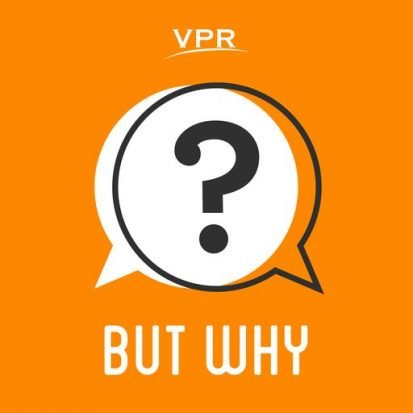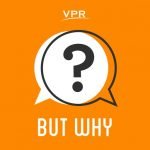
Why Aren’t Babies Just Little Adults?
Leave a reviewWhy are babies small and grownups big? Why are babies so helpless, instead of little versions of adults? Do babies know they’re babies? How do babies grow? How do babies learn to talk?
© Vermont Public Radio | 28:13
|Episode: 141 |
Full episode description
 Episode One: But Why: Intro For Adults
Episode One: But Why: Intro For Adults
This is an Episodic show. You can listen to it in any order, but episode one is always a great place to start.
Full Episode description
Why are babies small and grownups big? Why are babies so helpless, instead of little versions of adults? Do babies know they’re babies? How do babies grow? How do babies learn to talk?
Kids have been sending us lots of questions about babies! This week we’re learning more about the development of the human brain with Celeste Kidd, professor of psychology and primary investigator at the Kidd Lab at the University of California Berkeley.
Download our learning guides: PDF | Google Slides | Transcript
It seems like a really bad idea, right? Human babies rely on adult humans for everything, while babies of some species never meet their parents and are able to take care of themselves as soon as their born! Why is that?
While researchers aren’t sure on this one, Celeste Kidd says there are a lot of theories.
“Because we are very intelligent, we need bigger brains to account for all the things we can do that other animals can’t do. If you have a big brain and you’re born via live birth – meaning you aren’t born from an egg – then there’s an upper limit on how big your head can be when you go through the birth canal,” she explains.
In other words, we need those big brains to do all the things humans do, but a human head with a fully developed brain can’t fit through the birth canal.
“The bigger your head needs to be ultimately, the more immature you need to be born,” Celeste says. So we have to develop and grow outside of the womb. We’re born with some of our brain power, but our brains keep growing long after we’re born, well into our 20s. And there are some advantages to that long period of childhood.
“If you require dependence on your parents for a really long time, which humans do, that creates a lot of opportunity for you to learn a lot of stuff about your culture and the other people that you’re being raised with. We have a lot of knowledge that is unique to us as a species, and that’s unique to us as social groups,” Celeste says.
The long childhood allows for a lot of cultural transmission – learning about tools, language, manners and arts. Some of these exist in other species, but the human systems are a lot more elaborate and take more time to learn!
© Vermont Public Radio | Status: Active, 220 episodes | Kind: Episodic | Episode URL
The content, Artwork and advertising within this podcast is not owned or affiliated with Sound Carrot and remain the property of their respective owners.








